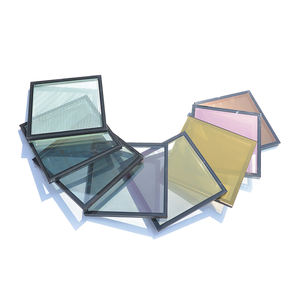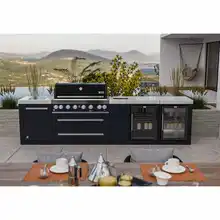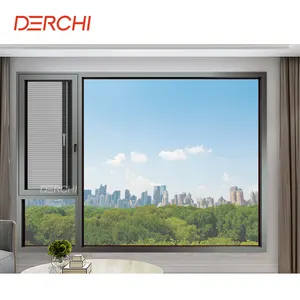What are Insulated Glasses
Insulated glasses, commonly known in the construction and building industry, are specialized glass products designed to enhance thermal efficiency within buildings. These glasses are not just for a single type of user; rather, they serve a broad spectrum of applications ranging from residential to commercial structures including offices, hotels, hospitals, and schools. The core principle behind insulated glass is to minimize the heat transfer between the inside and outside of a building, thereby contributing to a more stable indoor temperature and reduced energy costs.
The construction of insulated glass typically involves two or more panes of glass separated by an air or gas-filled space. This gap is essential as it acts as a barrier, reducing heat flow due to conduction and convection. The panes are sealed around the edges with a spacer and adhesive to create a single unit. Often, inert gases such as argon or krypton are used within the space for their superior insulating properties compared to regular air. Additionally, coatings such as low-emissivity (low-E) coatings can be applied to one or more of the glass surfaces to further improve thermal performance by reflecting infrared radiation.
This innovative approach to glass design not only offers energy savings but also aids in soundproofing, providing a quieter interior environment. Insulated glass is also available in various designs and styles to complement aesthetic preferences while meeting functional requirements. With the advent of sustainable building practices, insulated glass has become an integral component for green construction projects aiming for energy efficiency and comfort.
Types of Insulated Glasses
In the world of insulated glass, there is a variety suited for different building needs and aesthetic tastes. Each type serves specific use cases:
Double-Glazed Insulated Glass: This is a standard form where two panes of glass are separated by an air or gas-filled space. It's widely used in residential and commercial buildings for windows and curtain walls due to its good insulation properties.
Triple-Glazed Insulated Glass: For even greater thermal performance, triple-glazed insulated glass incorporates three layers of glass with two insulating gaps. This type is particularly beneficial in extreme weather conditions and for buildings prioritizing high energy efficiency.
Low-E Insulated Glass: These glasses have a microscopically thin coating that reflects heat. Low-E insulated glasses are essential for controlling heat transfer and are often used in regions with significant temperature variations throughout the year.
Laminated Insulated Glass: Combining laminated glass with insulated technology results in a multi-functional product that not only provides excellent thermal insulation but also safety features due to the lamination process. It's common in areas where additional safety or noise reduction is required.
Tempered Insulated Glass: When tempered glass is used in the insulated glass unit, it provides both thermal insulation and enhanced strength, making it an ideal choice for applications where safety and durability are concerns, such as in high traffic areas or where there is a risk of impact.
How to choose Insulated Glasses
Selecting the right insulated glasses for your business involves considering several factors that align with your specific needs and desired outcomes. The choice depends largely on the climate of your location, energy-saving goals, budget constraints, and aesthetic preferences.
When considering insulation performance, decide between double-glazed or triple-glazed options based on how much thermal resistance you require; triple-glazed offers higher insulation but at a higher cost. For climates with drastic temperature differences between seasons, Low-E coatings can be an essential feature by reflecting unwanted heat while keeping indoor temperatures stable.
Durability is another key factor; tempered insulated glasses may be preferable for settings prone to physical stress or where safety regulations demand robust materials. Laminated insulated glasses offer additional security benefits by holding together when shattered and providing soundproofing qualities which can be crucial for buildings in noisy environments.
Finally, consider the overall design of your building. The aesthetics of insulated glass units should complement your architectural vision whether you seek modern simplicity or traditional elegance. With Alibaba.com's selection, you can find suppliers offering various designs that will not only meet your practical requirements but also enhance your property's visual appeal.
Best Insulated Glasses on Alibaba.com
Alibaba.com stands out as a global marketplace connecting businesses with a vast array of suppliers offering insulated glasses tailored to diverse commercial needs. Whether you are constructing a new office complex or renovating a hotel, Alibaba.com provides access to high-quality insulated glass options suitable for any project size or scope. With over two decades of experience facilitating B2B sales across more than 190 countries, Alibaba.com has earned its reputation as an all-in-one platform for wholesale procurement.
The platform's extensive network includes suppliers that can meet custom requirements, ensuring that businesses can find products that fit their unique specifications – from color and shape to function and material. Moreover, Alibaba.com simplifies the buying process with features like mobile purchasing capabilities and multi-language communication support. Plus, services like Trade Assurance protect your payments until delivery fulfillment.
Choosing Alibaba.com as your source for wholesale insulated glasses means opting for convenience paired with variety. It brings together suppliers offering cutting-edge solutions that contribute to energy savings and enhanced building performance without compromising on style or quality standards – an invaluable advantage for businesses aiming to stay ahead in competitive markets.
Common FAQs for Insulated Glasses
What is the main benefit of using insulated glass in a building?
The primary benefit of using insulated glass is its ability to improve thermal efficiency by significantly reducing heat transfer. This leads to more stable indoor temperatures and could result in lower energy costs.
How does the gas fill between insulated glass panes enhance thermal performance?
The gas fill in insulated glass panes, typically argon or krypton, minimizes heat transfer more effectively than air due to their lower thermal conductivity. This enhancement in thermal performance keeps buildings warmer in winter and cooler in summer.
Can insulated glass help with soundproofing?
Yes, insulated glass can contribute to soundproofing due to the air or gas space between the panes which acts as an acoustic buffer, reducing noise transmission into the building.
What is low-E coating and how does it improve insulated glass?
Low-emissivity (low-E) coatings are thin, transparent layers applied to glass that reflect infrared energy (or heat). They help improve the insulating properties of the glass by reflecting interior temperatures back inside and keeping out unwanted heat or cold.
What are the differences between double-glazed and triple-glazed insulated glasses?
Double-glazed insulated glasses consist of two panes of glass separated by an insulating gap, whereas triple-glazed glasses have three panes with two insulating gaps. Triple-glazed offers higher thermal insulation but typically comes at a higher cost than double-glazed.
Are there safety benefits to using insulated glass?
Insulated glasses can be combined with tempered or laminated glasses, offering enhanced safety features such as increased impact resistance and the ability to hold together when broken, respectively.
How do I choose the right type of insulated glass for my project?
Selecting the right type depends on factors like climate, building location, energy-saving goals, safety requirements, and aesthetic preferences. Consider the level of insulation required, potential safety issues, and how the glass will fit into your building's design.
In what applications is tempered insulated glass most beneficial?
Tempered insulated glass is most beneficial in applications requiring both thermal insulation and enhanced strength, such as high-traffic areas or where there is a risk of physical impact.
Is it possible to customize the design of insulated glasses for specific architectural needs?
Yes, many suppliers on Alibaba.com offer customization options for insulated glasses to meet specific design requirements such as shape, color, function, and material composition.
Can insulated glasses be used for both residential and commercial buildings?
Insulated glasses are versatile and can be used in various settings including residential homes, commercial office buildings, hotels, hospitals, schools, and other structures that require efficient thermal management.
Does using insulated glass contribute to sustainable building practices?
Yes, by improving energy efficiency and reducing heat transfer, insulated glass is a key component in sustainable building practices that aim for a smaller carbon footprint and lower energy consumption.










































 浙公网安备 33010002000092号
浙公网安备 33010002000092号 浙B2-20120091-4
浙B2-20120091-4